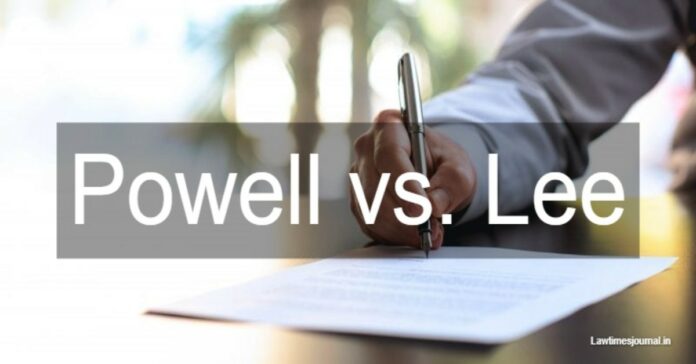
Bench: Kings Bench Division Equivalent Citation: (1908) 99 LT 284 Plaintiff: Mr. Powell Defendant: Mr. Lee
Introduction:
As per the Indian Contract Act, 1872 for a contract to be enforceable by law it is necessary that the contract should be valid. Section 10 of the Act states that one of the essential elements of a valid contract is that it should be accepted and communicated by both parties.
But what if the acceptance is made by an unauthorized person, will it still be valid? The answer to this question is provided in the case mentioned below.
Facts:
Mr. Powell [hereinafter referred to as the “plaintiff”] applied an application to the school for the position of headmaster. The School Board accepted his application and thereby decided to appoint him.
However, before such decision of appointment was conveyed to him by the authorized authority, one of the members of the board acting in his individual capacity informed the plaintiff of the board’s decision. Later, due to some reason, the board changed their mind and decided to withdraw their decision by appointing someone else.
Aggrieved by this, the plaintiff on the grounds of breach of contract filed a suit against the school.
Issue:
Whether, the school was liable for breach of contract.
Observations:
According to the Kings Bench Division, the question which needs to be considered is whether a person acting in his unauthorized capacity communicates the acceptance of an offer. The Hon’ble Judge of the country court stated, for an acceptance to be valid it is necessary that it is communicated. Moreover, the acceptance of such communication should be carried out by the offeree himself in his authorized capacity or by someone appointed by him.
In the above case, it was observed that the said member of the board was not in the capacity to accept the offer nor was he appointed by the board to communicate the acceptance. So, the question of breach of contract never arises as the acceptance was never communicated by the school board acting in their authorized capacity.
Judgement:
Therefore, the Court held that as the acceptance of application was not communicated by an authorized authority (i.e. school board), there was no contract between the plaintiff and the school board and, the concept of breach of contract did not arise.
Conclusion:
As observed from this case, for a contract to be valid it is essential that the acceptance must be communicated by an offeree acting in his authorized capacity or any other person duly authorized on his behalf. If any unauthorized person communicates the offer for acceptance then in such case the contract shall deem to be invalid.





